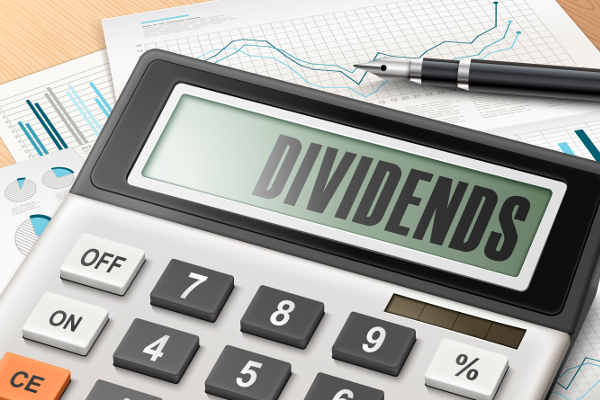Investment trust dividends decline for first time in over a decade
In the 18 months since the start of the pandemic, investment trust dividends have held up well.
17th August 2021 10:17
by Tom Bailey from interactive investor
Despite the dip in the first half of this year, in the 18 months since the start of the pandemic, investment trust dividends have held up well.

Investment trusts cut their dividend payments by almost £900 million in the first half of 2021, according to Link Group’s half-year Investment Trust Dividend Snapshot.
The report found that dividend payments were cut by a total £891.9 million between January and June 2021, representing a 3.1% decline compared to the same period one year prior.
The cuts in the first half of 2021 represent the first decline in more than a decade. Investment trusts previously collectively cut dividend payments in the second half of 2010, owing to the global financial crisis.
The cut in investment trust dividends comes despite a recovery in payments among UK listed companies. In the first half of 2021, underlying dividends rose by 8%. However, it is important to note that investment trust dividends always lag behind equities. This is because their dividends are paid from dividends distributed by companies held in the investment trust.
- Funds versus investment trusts: the key differences explained
- Are investment trust dividend heroes running out of runway?
- 19 investment trust dividend heroes weathered the Covid-19 storm
Link also highlights that despite the modest decline in payments over the first six months of 2021, in the 18 months since the start of the pandemic investment trust dividends have held up well. Between January 2020 and June 2021, UK dividends fell by almost 35% on an underlying basis. Meanwhile, global dividends declined by almost 6%. In contrast, investment trusts were able to raise payments by a collective 2%.
Despite the severe decline in dividend payments, investment trusts were able to raise dividends over that 18-month period due to their ability to draw on revenue reserves. Investment trusts can hold back up to 15% of income generated each year by underlying holdings to pay dividends in more difficult times. According to Link, £22 in every £100 of dividends distributed by investment trusts over the last 12 months has been funded from reserves. More than half of trusts (56%) have dipped into their reserves in some way.
Ian Stokes, a managing director at Link Group, points out:“It is one of the most reassuring features of investment trusts that they can smooth out the peaks and troughs in dividend income caused by the economic cycle or big one-off shocks. The amazing stability of investment trust dividends through the pandemic is a testament to this flexibility. For investors, this regular, predictable income is very welcome indeed.”
- Take control of your retirement planning with our award-winning, low-cost Self-Invested Personal Pension (SIPP)
- The 28 investment trusts that would have created ISA millionaires
- Funds and trusts for a hands-off approach
Ian Sayers, chief executive of the Association of Investment Companies (AIC), notes: “As Link’s Investment Trust Dividend Snapshot highlights, investment companies have important income benefits. Investment companies can hold back dividends from investee companies in a revenue reserve and distribute these dividends to shareholders in tough times such as the pandemic.”
The AIC pointed out that when investment trusts that specialise in alternative assets were included, dividends rose by 11% in the period.
Link expects dividend payments to fall further over the rest of the year. It estimates that investment trusts will pay £1.79 billion in total this year, which would be 3.2% lower than in 2020.
These articles are provided for information purposes only. Occasionally, an opinion about whether to buy or sell a specific investment may be provided by third parties. The content is not intended to be a personal recommendation to buy or sell any financial instrument or product, or to adopt any investment strategy as it is not provided based on an assessment of your investing knowledge and experience, your financial situation or your investment objectives. The value of your investments, and the income derived from them, may go down as well as up. You may not get back all the money that you invest. The investments referred to in this article may not be suitable for all investors, and if in doubt, an investor should seek advice from a qualified investment adviser.
Full performance can be found on the company or index summary page on the interactive investor website. Simply click on the company's or index name highlighted in the article.